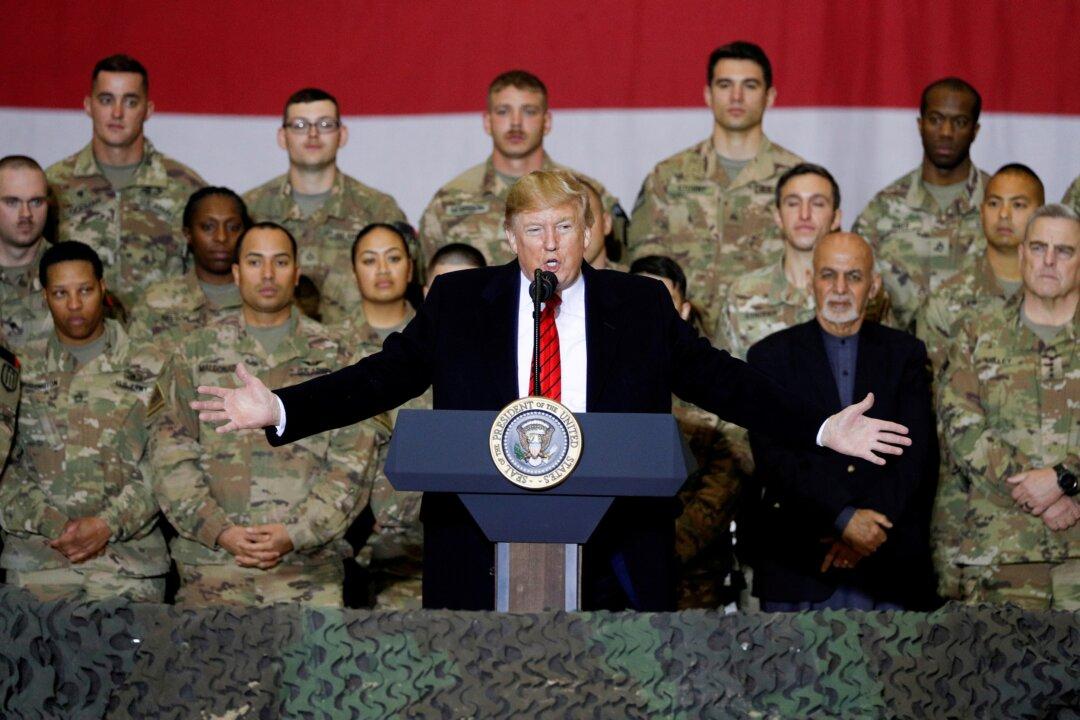President Donald Trump authorized sanctioning any International Criminal Court (ICC) officials who try to investigate or prosecute U.S. military or intelligence personnel, as top officials argued that the United States conducts its own probes into alleged misconduct.
Trump issued an executive order on June 11 declaring a national emergency with respect to attempts by the ICC to assert authority over U.S. personnel without U.S. consent.





